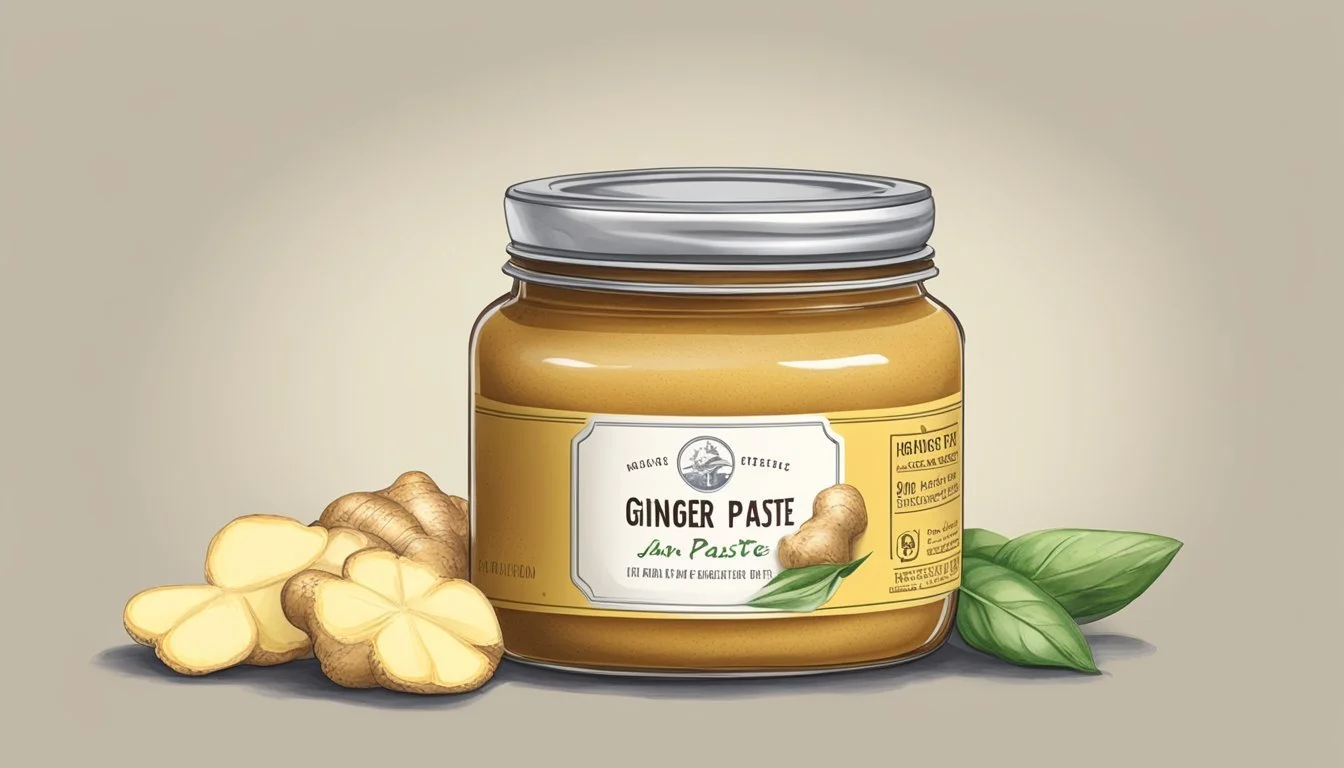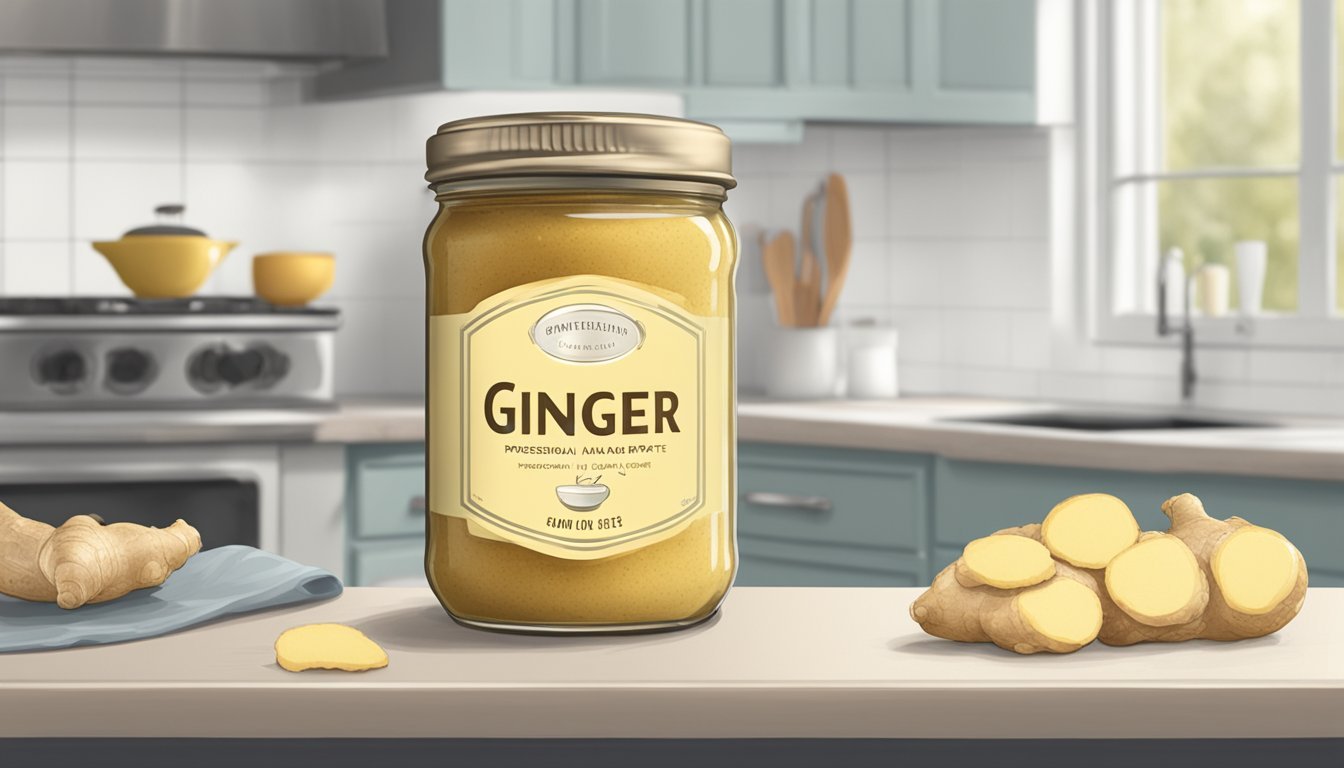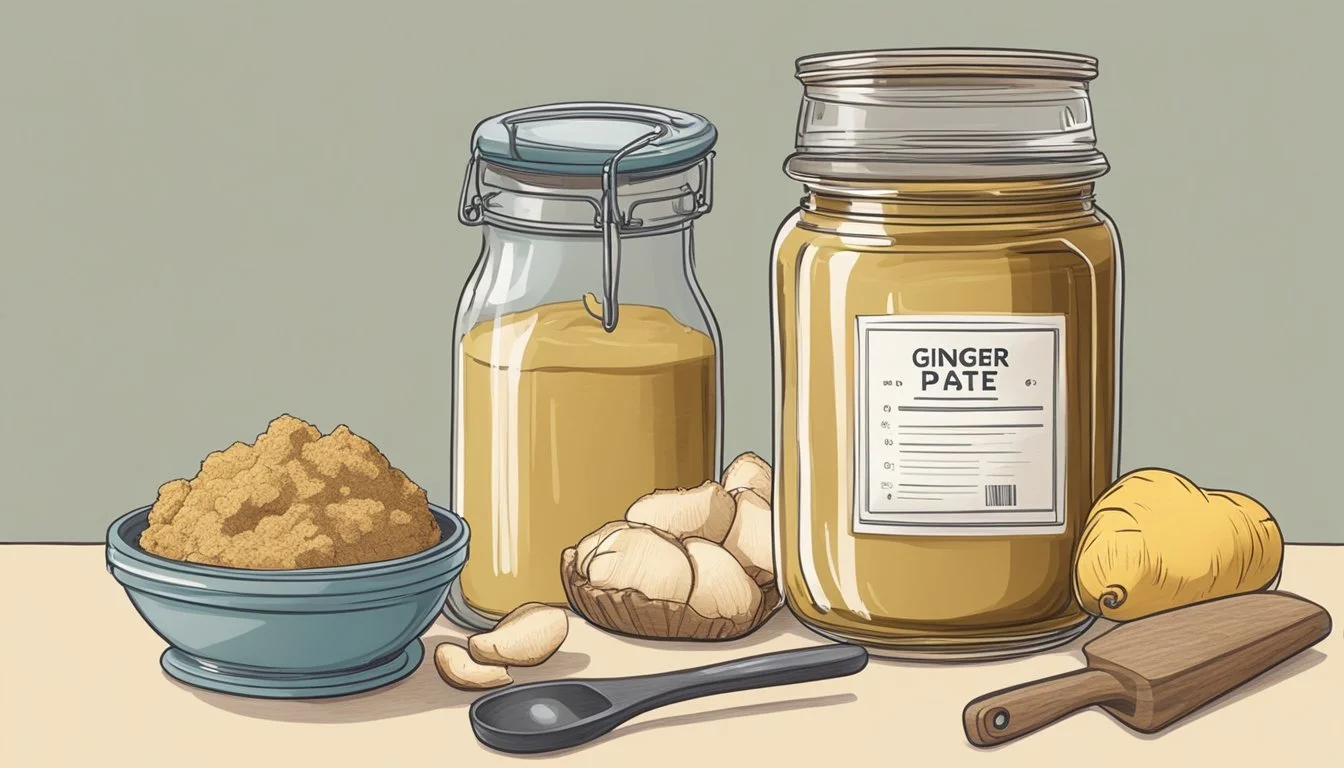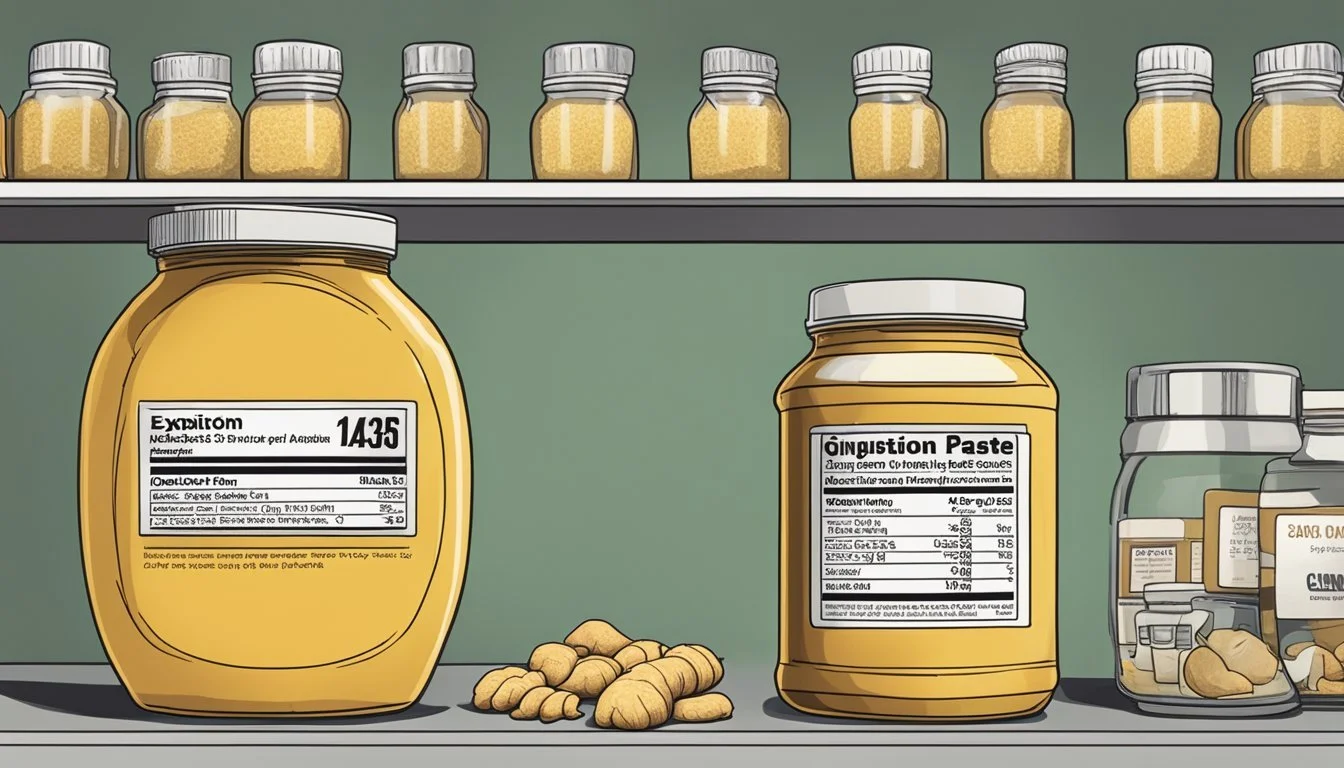Does Ginger Paste Go Bad?
Understanding Shelf Life and Storage Tips
Ginger paste is a convenient and versatile ingredient in many kitchens, offering the pungent, spicy flavor of ginger in a readily usable form. Like many other food products, ginger paste has a limited shelf life and can go bad over time. Quality and longevity greatly depend on the conditions under which it is stored. When preserved correctly, ginger paste can maintain its flavor and freshness for an extended period, making it a reliable addition to sauces, marinades, and various recipes.
Under optimal conditions, which typically involve refrigeration in an airtight container, ginger paste can last from several weeks to a couple of months. Factors that contribute to its degradation include exposure to air, moisture, and warm temperatures. If these conditions are not adequately managed, ginger paste is susceptible to spoilage, characterized by an off odor, discoloration, or the presence of mold. It's essential for consumers to recognize these signs of spoilage to avoid the risk of foodborne illness.
The potency of ginger paste also diminishes with time. Although the paste may not necessarily spoil, the intensity of its flavor can reduce, affecting the desired impact on dishes. Therefore, it is beneficial for users to be aware of both the shelf life and the peak flavor period of ginger paste to ensure the best culinary results.
Understanding Ginger Paste
Ginger paste is a convenient form of ginger used in culinary applications. This section will explore its definition, compare it to other forms of ginger, and discuss its health benefits.
What Is Ginger Paste?
Ginger paste is a pureed form of fresh ginger that is often used to add flavor to various dishes. It's typically made by blending peeled ginger with a small amount of water to create a thick paste. This form of ginger is favored for its ease of use and ability to integrate seamlessly into recipes, offering a potent, vibrant taste.
Comparing Fresh, Ground, and Paste Forms
Fresh Ginger: It is the raw form characterized by a sharp, pungent flavor.
Ground Ginger: This is dried and powdered ginger, which has a milder taste and a longer shelf life but is generally less potent than fresh ginger.
Ginger Paste: Acts as a middle ground, providing the fresh taste of ginger with the convenience of ground ginger.
Form Shelf Life Flavor Intensity Common Uses Fresh Ginger Short, refrigerated Very intense Marinades, dressings, stir-fries Ground Ginger Long, pantry Mild Baking, spice blends, teas Ginger Paste Moderate, refrigerated Moderate Curries, sauces, pastes
Health Benefits of Ginger
Ginger is known for its multiple health benefits. It's a versatile ingredient that has been linked to aiding digestion, reducing inflammation, and easing nausea.
Digestion: Ginger can help promote regular digestion and alleviate gastrointestinal distress.
Inflammation: The anti-inflammatory properties of ginger have been noted to reduce pain and inflammation.
Nausea: It's commonly used to soothe nausea, including motion sickness and morning sickness.
The various forms of ginger, including ginger paste, are used not just to enhance the flavor of food but also to incorporate these healthful properties into everyday diets.
Shelf Life and Spoilage
Ginger paste's shelf life varies depending on storage conditions, but understanding expiration dates, spotting spoilage, and recognizing freshness-impacting factors can prevent consumption of a bad product.
Expiration and Best-By Dates
Ginger paste typically comes with a best-by date which provides a guideline for maximum freshness; it is not an absolute expiration date. An unopened container of store-bought ginger paste may last up to three months past this date if refrigerated. Once opened, using the paste within a month ensures optimal flavor and safety.
Identifying Spoiled Ginger Paste
A paste that has gone bad may exhibit:
Off smell: A sour or unpleasant odor different from the zesty aroma of ginger.
Discoloration or mold: Any visible signs of green, black, or white mold indicate spoilage.
Taste: Changes in flavor could be a sign that the paste should no longer be consumed.
Factors Affecting Ginger Paste Freshness
Several elements affect the longevity of ginger paste:
Temperature: Keeping ginger paste refrigerated preserves freshness, while room temperature accelerates spoilage.
Air Exposure: An airtight container or seal minimizes oxidation and extends shelf life.
Moisture: Avoid introducing moisture to prevent mold growth.
Ingredient Quality: The use of high-quality, fresh ingredients can result in a paste with a longer shelf life.
Proper Storage Practices
Proper storage of ginger paste extends its shelf life and maintains its quality. The following subsections outline the best practices for storing ginger paste at various temperatures and conditions.
Storing at Room Temperature
Ginger paste should only be stored at room temperature if it is going to be used within a few hours. Prolonged exposure to room temperature accelerates the growth of bacteria and can lead to spoilage. Therefore, it is not recommended to store ginger paste in the pantry or on the countertop for an extended period.
Refrigeration and Freezer Storage
Refrigerator: To keep ginger paste fresh for several weeks, it should be stored in the refrigerator. Typically, ginger paste can last about 4-6 weeks when refrigerated.
Glass Jar: A glass jar with a tight seal is ideal.
Plastic Bag: Alternatively, one can use a resealable plastic bag to prevent air exposure.
Freezer: For long-term storage, freezing ginger paste is an efficient method.
Portioning: Divide the paste into usable portions before freezing.
Freezer Life: Properly stored, ginger paste can last for 3-4 months in the freezer.
Airtight Containers and Preservation
Using airtight containers is crucial for preserving the freshness and preventing the ginger paste from becoming rancid.
Materials: Both glass containers and resealable plastic bags are suitable.
Sealing: Ensure the container's seal is secure to prevent air and moisture from entering.
Labeling: Labeling the containers with the date of storage can help keep track of the paste's shelf life.
Freezing and Thawing Techniques
Freezing ginger paste can significantly extend its shelf life while maintaining its flavor and quality. Proper freezing and thawing techniques are essential for preserving ginger paste's integrity.
Using Ice Cube Trays for Individual Portions
Freezing ginger paste in ice cube trays offers convenience and portion control. The process involves:
Filling each section of an ice cube tray with ginger paste.
Covering the tray with a lid or wrap to prevent contamination.
Once frozen, transferring the ginger paste cubes to a freezer bag or airtight container to save space and avoid freezer burn.
This method allows for easy usage by removing individual portions without having to defrost the entire batch.
Preventing Freezer Burn and Maintaining Quality
To prevent freezer burn and ensure the frozen ginger paste retains its quality:
Store the ginger paste in airtight containers or heavy-duty freezer bags.
Remove as much air as possible before sealing to minimize exposure to oxygen.
Label the storage containers with the date of freezing to keep track of freshness.
When ready to use, defrost the necessary amount of ginger paste using cold water or a microwave set to defrost mode.
For the cold water method, place the portion in a resealable bag and submerge in cold water, changing the water every 30 minutes until thawed.
In the microwave, use low power and short intervals, stirring occasionally to ensure even thawing.
Extending Ginger Paste's Lifespan
To maximize the quality and longevity of ginger paste, one must consider the use of preservatives and the incorporation of specific ingredients that naturally prolong shelf life. Proper storage methods also play a pivotal role in preserving the paste's freshness, flavor, and texture.
Incorporating Preservatives
Natural preservatives such as ascorbic acid or citric acid can be added to ginger paste to extend its shelf life. They act as antioxidants, preventing oxidation which can lead to spoilage. The use of these preservatives should be carefully measured, as they can slightly alter the flavor profile of the ginger paste.
Ascorbic Acid: Often used in the form of powdered vitamin C, a small pinch can help prevent discoloration.
Citric Acid: Commonly found in lemon juice, adding a small quantity can enhance the paste's resistance to spoilage.
Mixing with Oil, Salt, or Acid for Preservation
Oil, when layered on top of the ginger paste, creates a barrier from air, thus reducing the risk of oxidative deterioration. One must ensure the oil layer is intact after each use to maintain its protective role.
Example: A spoonful of neutral-tasting oil like canola or vegetable oil, spread evenly on the paste's surface.
Salt acts as a natural preservative by creating an environment less favorable for bacterial growth. Mixing a small amount of salt into the paste can aid in preservation without significantly impacting the flavor when used moderately.
Guideline: Roughly half a teaspoon of salt for every cup of ginger paste.
Vinegar or acidic components like lemon juice can enhance the shelf life due to their low pH, which curbs the growth of bacteria. Additionally, they can contribute to the paste's flavor complexity.
Suggestion: Stir in one tablespoon of vinegar or fresh lemon juice per cup of ginger paste.
These substances not only help in preserving freshness but also contribute to retaining the ginger paste's robust flavor and desirable texture. Users should store the enhanced ginger paste in an airtight container and refrigerate to optimize preservation.
Culinary Applications and Tips
Within the realm of cooking, ginger paste is a versatile ingredient used to introduce a distinctive warmth and vibrancy. Its application varies from infusing a piquant flavor into soups and marinades, to imparting an aromatic sweetness in baked goods and desserts.
Enhancing Flavor in Soups and Marinades
Soups: Ginger paste instantly elevates the taste profile of soups, offering a subtle yet sharp zest that complements many ingredients. It blends well into both creamy and brothy soups.
Marinades: When it comes to marinades, ginger paste acts as both a flavor agent and a tenderizer. Its enzymes help to break down proteins, thus adding depth and enhancing the absorption of spices in meats.
Key Ingredients for a Ginger Marinade:
Ginger paste: 2 tablespoons
Soy sauce: 1/4 cup
Sesame oil: 2 teaspoons
Garlic (minced): 1 tablespoon
Brown sugar or honey: 1 tablespoon
Usage in Baking and Desserts
Baking: Ginger paste can be a game-changer in recipes like gingerbread, where it contributes to the eponymous flavor. It's best to start with a small amount and adjust according to taste as it can be quite potent.
Desserts: A hint of ginger paste in desserts can balance sweetness with its spicy undertone. From ginger-infused syrups for pancakes to spicy ginger cookies, it offers a surprising twist to traditional flavors.
Example for Baking with Ginger Paste:
Add 1 teaspoon of ginger paste to your gingerbread mix for a robust flavor.
Creating Mixes like Ginger-Garlic Paste
Ginger-Garlic Paste: This combination is a staple in many cuisines, particularly in curries and stir-fries. The mixture typically contains equal parts of ginger and garlic, ground together to form a smooth paste.
Typical Ratio:
Ginger paste: 1 part
Garlic paste: 1 part
A well-prepared ginger-garlic paste not only enriches the food it's added to but also reduces prep time in the kitchen. By having it ready-to-use, chefs can efficiently build complex layers of flavor in their dishes without compromise.
Common Questions and Additional Tips
When dealing with ginger paste, understanding its shelf life and proper storage methods is crucial. This section focuses on frequently asked questions and solid tips for maintaining the paste’s quality.
FAQs about Ginger Paste Storage and Usage
Q: How can one tell if ginger paste has gone bad?
A: Indicators include an off smell, discoloration, or the presence of mold.
Q: What is the best way to store ginger paste to maintain its freshness?
A: Ginger paste should be stored in an airtight container in the refrigerator.
Q: Does the potency of ginger paste diminish over time?
A: Yes, over time, especially after opening, ginger paste can lose its potency.
Q: How does one keep ginger paste healthy and safe to consume?
A: Ensure it's stored correctly, and always use clean utensils to minimize contamination.
Expert Storage Tips for Longevity
Upon Opening: Mark the ginger paste with a label indicating the date of opening.
Best Storage Practice: Refrigeration is key—ideally between 32°F (0°C) and 39°F (4°C).
Avoid Cross-Contamination: Use clean utensils each time to prevent bacteria from entering the paste.
Regular Checks: Periodically inspect for any signs of spoilage such as mold or strange odors.
By adhering to these practical tips and being aware of the common concerns, consumers can ensure their ginger paste remains a fresh and vibrant addition to their culinary creations.
Safety Considerations
Consumers must prioritize safety when handling and storing ginger paste to prevent health risks. Proper techniques ensure the product remains free from contaminants that can cause food-related illnesses.
Avoiding Health Risks with Proper Handling
One must store ginger paste in an airtight container and refrigerate it to limit exposure to air and water vapor, which can encourage bacterial growth. The presence of oil in some commercial ginger pastes may initially inhibit bacteria, but once the seal is broken, the same principles of storage apply as to any other perishable food.
To further ensure the paste's safety:
Check for spoilage signs such as an off smell, discoloration, or the presence of mold. These are clear indicators that the ginger paste is no longer safe to consume.
Use clean utensils to prevent the introduction of bacteria into the paste, which can accelerate spoilage.
Keep the paste away from sources of contamination like raw meats or unclean surfaces to maintain its safety.
By adhering strictly to these guidelines, one can significantly curb potential health risks associated with consuming spoiled ginger paste.
Advanced Preservation Techniques
In the quest to extend the lifespan of ginger paste, advanced preservation techniques, such as pickling, drying, and vacuum sealing, play a significant role. These methods can greatly increase shelf life when applied correctly.
Pickling and Drying Ginger for Storage
Pickling is an age-old method that involves immersing ginger in a solution of vinegar or brine. To achieve this:
Chop fresh ginger into fine slices or mince it for easier pickling.
Prepare a pickling solution by boiling vinegar with sugar and salt.
Once cooled, pour the solution into an airtight container with ginger and seal tightly.
Pickled ginger can be kept in a refrigerator, where it can last for several months due to the acidic environment slowing down bacterial growth.
Drying, on the other hand, removes moisture from ginger, one of the main causes of spoilage:
Slice ginger thinly and spread on a drying tray.
Use a dehydrator or an oven set to the lowest temperature to dry the ginger until it is crisp.
Once dried, ground ginger can be made into powder and stored in an airtight container, away from direct sunlight.
Dried ginger will last for up to a year if stored properly, with its flavor becoming more concentrated over time.
Using Vacuum Sealing for Extending Shelf Life
Vacuum sealing is a modern preservation method that removes air from the packaging, effectively extending the shelf life of ginger paste. Steps for vacuum sealing ginger paste include:
Place ginger paste in a vacuum seal bag.
Use a vacuum sealing machine to extract the air and seal the bag.
The absence of air greatly reduces oxidation and bacterial growth. When vacuum-sealed, ginger paste can last several months in the refrigerator and longer if kept in the freezer. Vacuum sealing can be particularly useful for those who make large batches of ginger paste and need to store it long-term.





